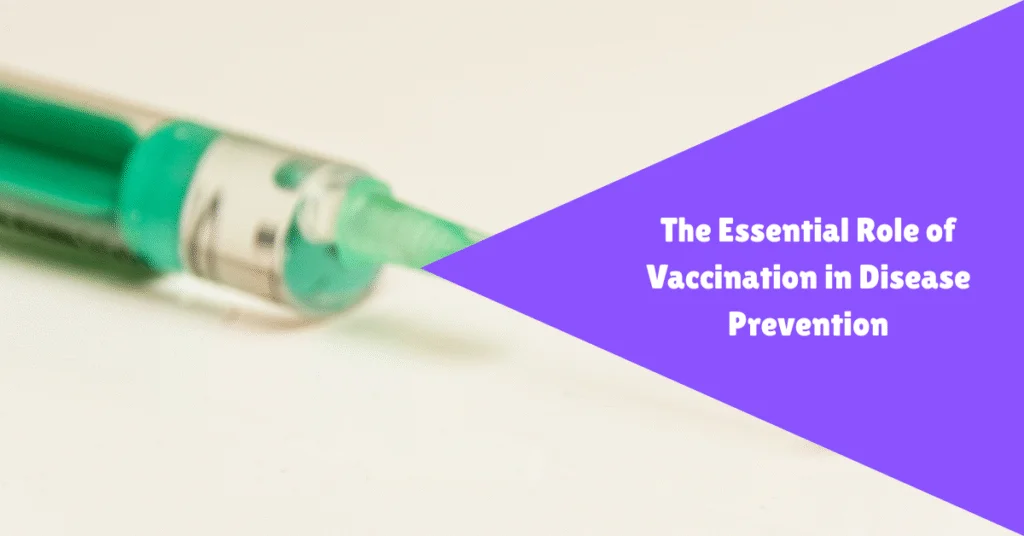Vaccination is essential for safeguarding individual and public health. By stimulating the immune system to recognize and combat specific pathogens, vaccinations play a crucial role in preventing the spread of infectious diseases and promoting overall well-being. Here’s all the information about the role of vaccination in disease prevention:
Role of Vaccination in Disease Prevention
1. Protects Against Infectious Diseases
Vaccination provides immunity against a range of serious diseases, including measles, mumps, rubella, and influenza. By receiving vaccines, individuals build defense mechanisms that protect them from these potentially life-threatening illnesses, reducing the risk of severe health complications and hospitalizations.
2. Enhances Community Health Through Herd Immunity
When a significant portion of the population is vaccinated, it creates herd immunity, which protects those who cannot be vaccinated due to medical conditions or age. This collective protection helps prevent the spread of diseases, reducing the likelihood of outbreaks and ensuring the health of vulnerable groups.
3. Cost-Effective Preventive Measure
Vaccination is a cost-effective strategy for disease prevention. By preventing illness, vaccines help avoid costly medical treatments, hospital admissions, and long-term healthcare expenses. For healthcare systems, this means a reduction in the financial burden associated with managing preventable diseases.
4. Proven Safety and Efficiency
Vaccines undergo extensive research and testing to ensure their safety and effectiveness. The rigorous approval process helps ensure that vaccines provide strong protection with minimal risk of side effects. Common side effects are usually mild and temporary, such as soreness at the injection site or a slight fever.
5. Required for Travel and School Enrollment
Many schools and countries require proof of vaccination for entry, helping to control the spread of diseases across borders and within educational settings. Vaccines such as those for hepatitis B, diphtheria, and tetanus are often required, ensuring a safer environment for everyone.
6. Supports Long-Term Health
Maintaining up-to-date vaccinations is crucial for long-term health. Vaccines not only protect against immediate diseases but also contribute to lifelong wellness by preventing chronic conditions and serious complications that can arise from preventable infections.
Kids Vaccination Chart 2025 (India)
Below is the recommended vaccination timeline based on the latest pediatric guidelines for India in 2025. Always consult your pediatrician for personalized schedules.
Birth
- BCG – Tuberculosis
- OPV-0 – Oral Polio Vaccine (zero dose)
- Hepatitis B-1 – First dose
6 Weeks
- DTaP-1 – Diphtheria, Tetanus, Pertussis
- IPV-1 – Inactivated Polio Vaccine
- Hib-1 – Haemophilus Influenzae type b
- Hepatitis B-2
- PCV-1 – Pneumococcal
- Rotavirus-1
10 Weeks
- DTaP-2
- IPV-2
- Hib-2
- Hepatitis B-3
- PCV-2
- Rotavirus-2
14 Weeks
- DTaP-3
- IPV-3
- Hib-3
- Hepatitis B-4
- PCV-3
- Rotavirus-3
6 Months
- Influenza (1st dose) – Seasonal flu vaccine
9 Months
- MMR-1 – Measles, Mumps, Rubella
- Typhoid Conjugate Vaccine (TCV)
12 Months
- Hepatitis A-1
- PCV Booster
15 Months
- MMR-2
- Varicella (Chickenpox)
- Hib Booster
18 Months
- DTaP Booster-1
- IPV Booster-1
- Hepatitis A-2
2 Years
- Typhoid Booster
4-6 Years
- DTaP Booster-2
- IPV Booster-2
- MMR-3
- Varicella-2
10 Years
- Tdap – Tetanus, Diphtheria, Pertussis Booster
- HPV – Human Papillomavirus (for girls and boys)
Conclusion
Vaccination is a key element in disease prevention and public health. By getting vaccinated, individuals protect themselves and contribute to the collective health of their communities. Staying informed about vaccination schedules and ensuring timely immunizations is essential for a healthier, disease-free future.
We at KidsCur provide access to the medical information of their children in one app all over India. Contact us to provide your children with vaccinations to keep them strong and healthy!

